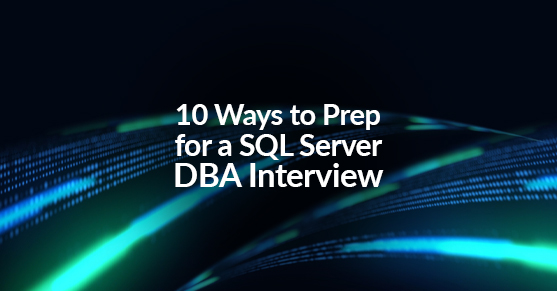Are you looking for a job as a SQL Server Database Administrator (DBA)? If so, you need to ace the technical interview and impress your potential employer. A SQL Server DBA is responsible for managing and maintaining the SQL Server database systems in an organization. This requires a solid knowledge of SQL Server, database design, performance optimization, security, and disaster recovery. In this blog, we’ll share ten tips to help you prepare for a SQL Server DBA technical interview.
1. Review your resume and portfolio. Before the interview, make sure you have a clear and concise resume that highlights your relevant skills, achievements, and projects related to SQL Server DBA. Be ready to explain your role and responsibilities in each project, as well as the challenges and solutions you encountered. You may also want to prepare a portfolio of your work samples, such as scripts, reports, or diagrams, to showcase your abilities and experience.
2. Understand the fundamentals of SQL Server. The first step to prepare for a SQL Server DBA technical interview is to understand the fundamentals of SQL Server. You should know how SQL Server works, how data is stored and accessed, and how to use SQL Server management tools. You should also be familiar with the features and components of SQL Server, such as system databases, SQL Agent, SSIS, SSRS, SSAS, replication, clustering, Always On Availability Groups, etc.
3. Brush up on your database design skills. Database design is an important skill for a DBA. You should know how to design databases that are normalized, well-structured, and easy to maintain. You should also know how to use data modeling tools and techniques.
4. Know your performance tuning techniques. Performance tuning is a key task for a DBA. You should know how to optimize the performance of your database systems by using techniques such as indexing, query optimization, and performance monitoring. You should also know how to use SQL tools and utilities, such as SQL Server Management Studio (SSMS), SQL Server Profiler (SSP), Database Engine Tuning Advisor (DTA), etc.
5. Be comfortable with disaster recovery procedures. Disaster recovery is a vital aspect of database management. You should know how to protect your data from loss or corruption by using different recovery models in SQL Server. You should also know how to backup and restore your databases.
6. Understand security and compliance requirements. Security and compliance are essential for a DBA. You should know how to secure your data and comply with the regulations that apply to your organization. You should also know how to use SQL Server’s security features, access control, and auditing capabilities.
7. Be proficient in SQL scripting. SQL scripting is a useful skill for a DBA. You should know how to write SQL scripts to automate tasks, create stored procedures, and more. Powershell is a plus as well.
8. Be familiar with high-availability features. High availability is a crucial feature of database management. You should know how to use SQL Server’s high availability features such as clustering, mirroring, and Always On Availability Groups to ensure your databases are always available.
9. Stay up to date with the latest trends and technologies. Technology is constantly evolving, and as a DBA, you need to keep up with the latest trends and technologies that affect the database industry and your role. For example, you should know about the new features and enhancements of the latest versions of SQL Server (such as 2019 or 2022), the cloud-based services and platforms (such as Azure SQL Database or AWS RDS), the emerging concepts and paradigms (such as big data or artificial intelligence), etc.
10. Prepare for behavioral questions and scenarios. Besides technical questions, you may also face some behavioral questions that aim to assess your personality traits, work ethics, communication skills, teamwork skills, problem-solving skills, etc. These questions may be based on hypothetical situations or real-life examples from your past work experience. For example, you may be asked how you handle stress, conflict, deadlines, errors, feedback, etc. You should prepare some specific and relevant stories or examples that demonstrate your strengths and achievements in these areas. You should also be ready to discuss real-life situations and how you would handle them as a DBA. This may include issues with backup and recovery, corruption, performance optimization, security, etc.
Conclusion
A SQL Server DBA technical interview can be challenging, but with proper preparation, you can ace it and land the job. By following the tips above, you’ll be able to demonstrate your knowledge of SQL Server fundamentals, database design, performance tuning, disaster recovery, security and compliance, SQL scripting, high availability, and the latest trends. You’ll also be able to handle any behavioral questions.
For questions about SQL Server, or our SQL Server DBA Services, please contact us!

